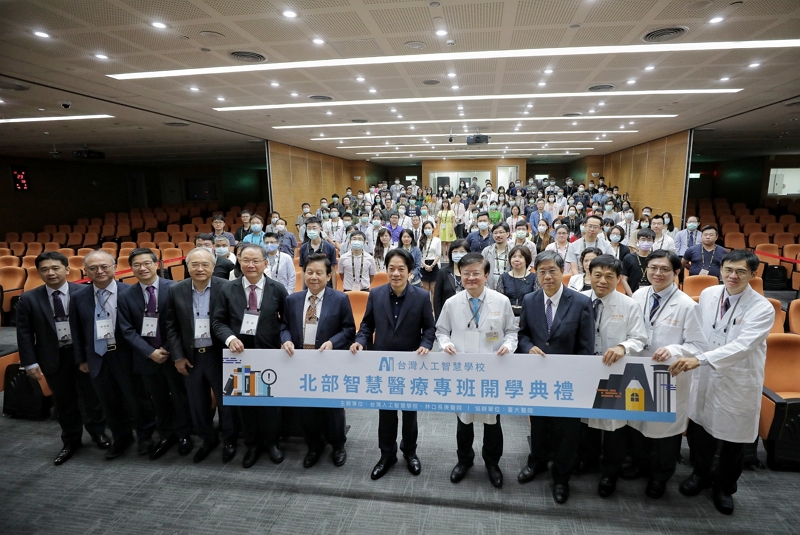AI to play bigger role in developing Taiwan's health care, medical industries

Vice President Lai Ching-te (seventh left) takes part in the opening ceremony of the Taiwan AI Academy program Aug. 23 in Taipei City. (Courtesy of Presidential Office)
No stone is being left unturned in ensuring Taiwan artificial intelligence continues spurring the development of health care and medical industries at home and abroad, Vice President Lai Ching-te said Aug. 23.
As one of the leading countries in the global information and communication technology sector, Taiwan possesses extensive experience in building and operating cutting-edge data bases, Lai said. This know-how is one of the reasons for the success of the internationally celebrated National Health Insurance system, and is at the heart of efforts to transform the country into a smart health care hub, he added.
Lai made the remarks at the opening ceremony of a Taiwan AI Academy program in Taipei City.
According to Lai, the program aims to equip the participants with requisite knowledge and skills via theory and practical sessions in core areas of competency. It is expected the approach will prove highly effective in keeping Taiwan at the head of the AI pack, he said.
In addition, Lai said, the trainees will serve as sources of expertise as they take on front-line roles and set about narrowing the urban-rural divide in provision of related resources and services.
Supported by Academia Sinica’s Institute of Information Science and Research Center for Information Technology Innovation, the academy maintains campuses in Hsinchu and Taipei cities, northern Taiwan; Taichung City, central Taiwan; and Tainan City, southern Taiwan. AS, headquartered in Taipei’s Nangang District, is the country’s foremost research institution.
The academy has trained more than 6,500 participants since launching in 2018. Of these, 1,000 were from organizations involved in Taiwan’s health care and medical industries. (TYT-E)
